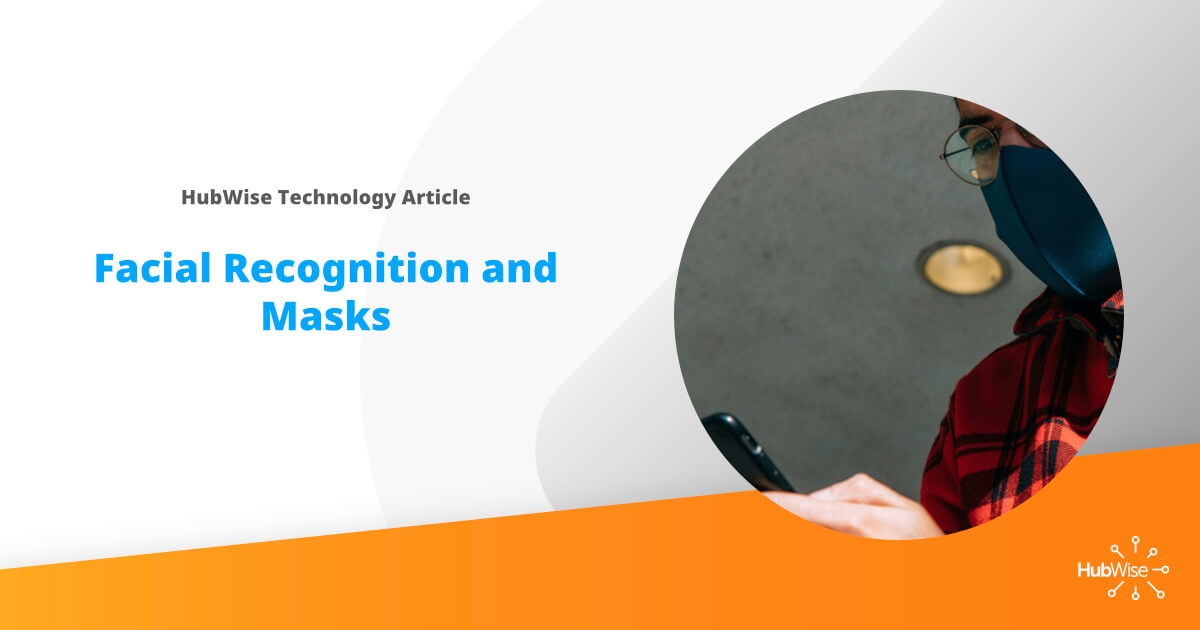
Facial Recognition and masks
Advocates of privacy in public spaces are one group that currently enjoy the benefits of wearing a facemask during the Covid-19 pandemic. Facial recognition software struggles to accurately recognize who someone is while wearing a face covering.
Facial recognition software and algorithms are dependent upon collecting as many data points as possible, including distances between facial features. When this ability to measure has been taken away by a face covering, the accuracy of the software plummets. Many governmental agencies and private businesses are desperately trying to find a way to reprogram the algorithm’s that control facial recognition software to increase the accuracy of identification while wearing a facemask. The Metropolitan Transit Authority in New York is one of these agencies. They are asking Apple to adjust their algorithm so that riders of the MTA’s public transportation do not have to take off their facial coverings to open their iPhone while on the bus or subway.
The U.S. National Institute of Standards and Technology, NIST, recently published a study that shows that even the most advanced facial recognition software struggles to accurately identify someone who is wearing a mask. NIST proved that there was a decrease in accuracy of anywhere from 5% to 50%. Providers of facial recognition software are trying to adapt their technology and algorithms to focus on someone’s eyes and nose area for identification. This change can increase the accuracy of the algorithm, but it limits the data points that are collected, which becomes an inherent flaw within the software. This may be a viable option on increasing the accuracy of identifying a masked person, but the less data points that are collected by the software, the less accurate a match will result. While it is inevitable that this new facial focus points are changed while masks are mandated, beating the software from identifying you becomes easier. Covering your nose fully with your mask, wearing glasses, bad lighting, and shadows become more of a hinderance to accurate recognitions. After most algorithms change, NIST plans to run a new study later this year to judge the effective rate to the alterations in the software programing.
The Covid-19 pandemic has increased the use of and importance of facial recognition software worldwide. To decrease choke points upon entering buildings, many companies have eliminated swipe cards to enter buildings and have begun relying on facial recognition technology to increase the speed that employees can enter buildings. The increased use of facial recognition coupled with changes to the algorithm should increase the accuracy of the software in the future. The new focus on the nose, eyes, and area above it will lead to a long-term increased accuracy with facial recognition. The periocular region of the face, or the eye and eyebrow region change less than the rest of the face due to age or weight gain and loss. These new algorithms are in the final phases of development and will begin to rollout over the next several weeks by many of the technology’s providers.
Even with the increased stress on identifying features in the periocular region, the loss of data points will still decrease the accuracy of recognition by someone wearing a mask. Privacy rights advocates also point out that this technology can be deployed against people trying to mask who they are for privacy reasons, like a peaceful protestor worried about blowback from their employer.
The pace of change of technology has and will continue at a rapid pace for the foreseeable future. This continuous change is the only constant in the world of technology. This constant change is why HubWise Technology hold fearless innovation as a core value. We are constantly striving to study and evaluate new technologies to ensure our customers are enabled for success. IF you would like to learn more about how HubWise uses technology to protect their client’s networks, please reach out. (402) 339-7441 or jmoen@hubwisetech.com.
